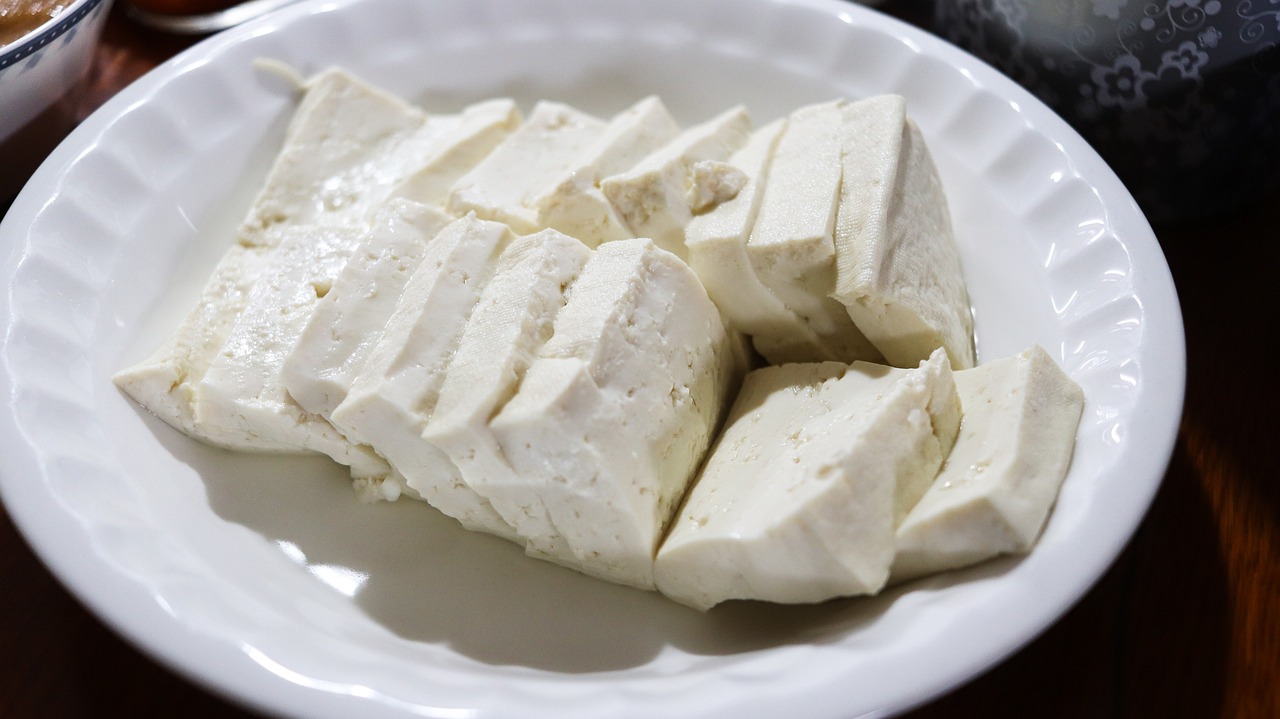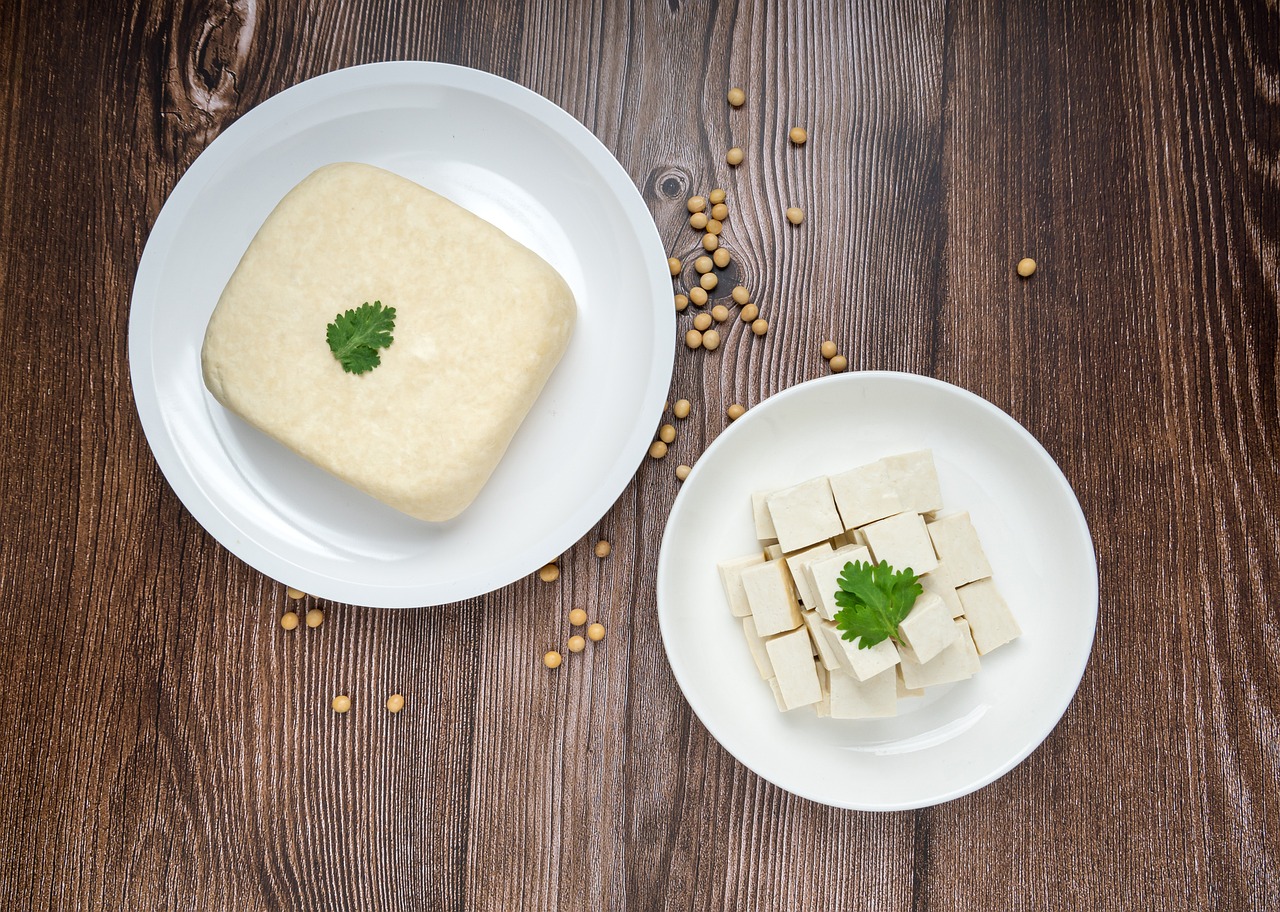Tofu is a globally popular and nutrient-rich food that is loved by a large number of people. It is an excellent source of plant-based protein and vital minerals from soybeans. Tofu is frequently prepared in various ways but can also be consumed raw. If you’re contemplating including raw tofu in your diet, you may be concerned about its safety and potential hazards. This article will investigate whether raw tofu is safe to consume and address any potential risks that should be considered.
Whether you have a preference for eating tofu raw or you are interested in preparing it in different ways, there are a few things that you should know. While tofu is an excellent source of proteins, there are a few factors to consider before deciding to eat it.
Can you Eat Tofu Raw?
Tofu, also known as bean curd, is a popular soybean-based food frequently used as a meat substitute in vegetarian and vegan dishes. Tofu is commonly consumed cooked, but it can also be consumed raw.
Tofu is typically soft and crumbly, with a nutty or bean-like flavor. As a protein-rich ingredient, it can be sliced or crumbled and added to salads or other dishes. Tofu can also be eaten raw as a snack, plain, or with a dip or sauce.
It’s worth noting that some tofu, particularly those labeled “silken” or “soft,” may have a softer texture and be better suited for eating raw than firmer tofu.
It is important to note that raw soybeans, including raw tofu, may contain lectins and trypsin inhibitors, which can interfere with digestion and be harmful if consumed in large quantities. However, because these toxins are generally removed during manufacturing, tofu is generally safe to consume in moderate amounts. To reduce the risk of foodborne illness, it’s always a good idea to handle and store tofu properly, just like any other food.
What does Tofu Taste Like?
Tofu can be used in sweet and savory meals, and its flavor and texture can vary according to how it is prepared. It has a mild, slightly nutty, or bean-like flavor and absorbs the flavors of the other items it is cooked with. Firm or extra-firm tofu, for instance, has a harder, more meat-like texture and a little stronger flavor than silken or soft tofu, which has a softer, more delicate texture and a milder flavor.
Some people find tofu’s flavor bland or unattractive, while others appreciate its delicate flavor. Tofu may taste nice by combining it with savory ingredients and sauces and experimenting with various cooking techniques in addition to grilling, stir-frying, and roasting; marinating tofu before cooking is an effective approach to increase its flavor.
Potential Benefits of Consuming Raw Tofu
Eating raw tofu may have several health benefits. Here are a couple of examples: Here are a couple of examples:
High in protein: Tofu is a good source of protein, with approximately 8-10 grams per 1/2 cup serving. Including tofu in your diet can help you get enough of this essential nutrient, which is important for tissue building and repair, enzyme and hormone production, and immune function.
Low in calories and fat: Tofu is low in calories and fat, making it an excellent choice for those trying to maintain a healthy weight.
Rich in essential nutrients: Tofu is an excellent source of various essential nutrients, including iron, calcium, and B vitamins. It’s also high in minerals like magnesium and phosphorus.
May have antioxidant properties: Some research suggests that raw tofu contains higher levels of certain antioxidants, such as isoflavones, than cooked tofu. These compounds may have various health benefits, such as lowering the risk of certain cancers and improving heart health.
Reference: Antioxidant Properties of Soybean Isoflavone Extract and Tofu in Vitro and in Vivo
It’s important to note that the potential benefits of raw tofu will vary depending on the specific nutrients and health benefits you seek, as well as your overall diet and lifestyle. Like any other food, tofu should be consumed in moderation as part of a well-balanced diet.
Potential Risks of Consuming Raw Tofu
While raw tofu can be a nutritious and healthy food, there are a few risks to consider if you want to incorporate it into your diet. Here are a couple of examples:
Contamination: Tofu, like any other food, is susceptible to contamination from bacteria, viruses, or other harmful substances if it is not handled and stored properly. To reduce the risk of foodborne illness, always wash your hands before handling tofu and keep it in the refrigerator until ready to use.
Toxins: Raw soybeans, including raw tofu, can contain lectins and trypsin inhibitors, which can disrupt digestion and be harmful if consumed in large quantities. However, because these toxins are generally removed during manufacturing, tofu is generally safe to consume in moderate amounts.
Nutrient availability: The availability of certain nutrients in tofu can also be affected by the cooking process. Cooking tofu, for example, can increase the availability of iron, which is necessary for transporting oxygen to the body’s cells. However, some studies have found that when tofu is consumed raw, its calcium is more easily absorbed.
Overall, it’s critical to weigh the risks and benefits of eating raw tofu and make an informed decision about whether it’s right for you. To reduce the risk of foodborne illness, it’s always a good idea to handle and store tofu properly, just like any other food.
Is Tofu Gluten-Free?
It is naturally gluten-free because it is manufactured from soybeans, which do not contain gluten.
However, it is crucial to remember that certain tofu forms may be processed or packed in facilities that also handle gluten-containing grains such as wheat, barley, and rye. If you have celiac disease or a gluten allergy, you must ensure that the tofu you purchase is labeled “gluten-free.”
Notably, some tofu may be prepared or seasoned with gluten-containing substances, such as soy sauce or wheat-based broth. Check the ingredient list of any flavored or seasoned tofu products to ensure that they do not contain gluten if you are gluten-free.
Tofu is generally a safe and nutritious food for gluten-free dieters, so long as it is carefully sourced and prepared. It includes various critical elements, such as iron, calcium, and B vitamins, and is a strong source of plant-based protein.
What is the Healthiest Way to Eat tofu?
Tofu is a nutritious meal that can be used in various ways in a balanced diet. Here are some healthy tips for preparing and consuming tofu:
Select the appropriate type of tofu: Tofu is available in various textures, including silken, soft, firm, and extra-firm. The type you select will depend on the recipe and your taste. In general, firmer tofu is lower in moisture and may be slightly more nutritious than softer varieties because it is less processed.
Marinate or season tofu: To add flavor to tofu, marinate it in oil, vinegar, soy sauce, and spices, or season it with herbs, spices, or other flavorful ingredients. This can make tofu more delicious and increase the nutritional value of your dishes.
Experiment with different cooking methods: Tofu can be grilled, stir-fried, roasted, or baked, among other culinary techniques. Consider using a range of healthy oils, such as olive oil and coconut oil, to add taste and nutrients to your food.
Include tofu in a balanced diet: To maximize the health benefits of tofu, make sure to include it in a diet that also contains a variety of other plant-based proteins, such as beans, lentils, nuts, and seeds, as well as fruits, vegetables, whole grains, and healthy fats.
The healthiest way to consume tofu is to prepare it in a way that is both delicious and nutritious and to include it in a balanced diet that promotes your overall health and well-being.
Is it Safe to Eat Tofu Every Day?
Tofu is a healthy and high-quality source of protein that can be included in several dishes and meals. It includes various critical elements, such as iron, calcium, and B vitamins, and is a strong source of plant-based protein. It is generally safe to consume tofu and other soy products daily as part of a healthy diet.
As with any food, it is essential to consume tofu in moderation and to incorporate a range of other plant-based proteins and nutrient-dense foods into your diet. Tofu is also low in calories and fat, making it an excellent option for people seeking to maintain a healthy weight.
Tofu can be a nutritious and tasty component of a well-balanced diet. Handling and storing tofu appropriately is always prudent to limit the danger of foodborne illness.
Can you Put Raw Tofu in Soup?
Yes, you can add raw tofu to the soup. Tofu is a high-protein food with a mild, slightly nutty, or bean-like flavor that complements the flavors of many soups. Slice or crumble raw tofu and add it to the soup during the last few minutes of cooking, or serve it as a topping for the finished soup. Proper handling and storing of tofu are critical to reducing the risk of foodborne illness.
Conclusion
Essentially, the tofu seen in most supermarkets is not raw food because it has been pre-cooked before packaging. It is an excellent source of nutrients and can be added to various dishes and recipes without effort.
Even while tofu can be consumed directly from its packaging, it carries a risk of infection due to its manufacturing process. Before consuming, it’s also necessary to conduct proper preparation and storage at home.
While most people have a low chance of falling ill from eating raw tofu, very young children, elderly persons, pregnant women, and those with compromised immune systems may wish to exercise particular caution when consuming tofu at home without boiling it.

